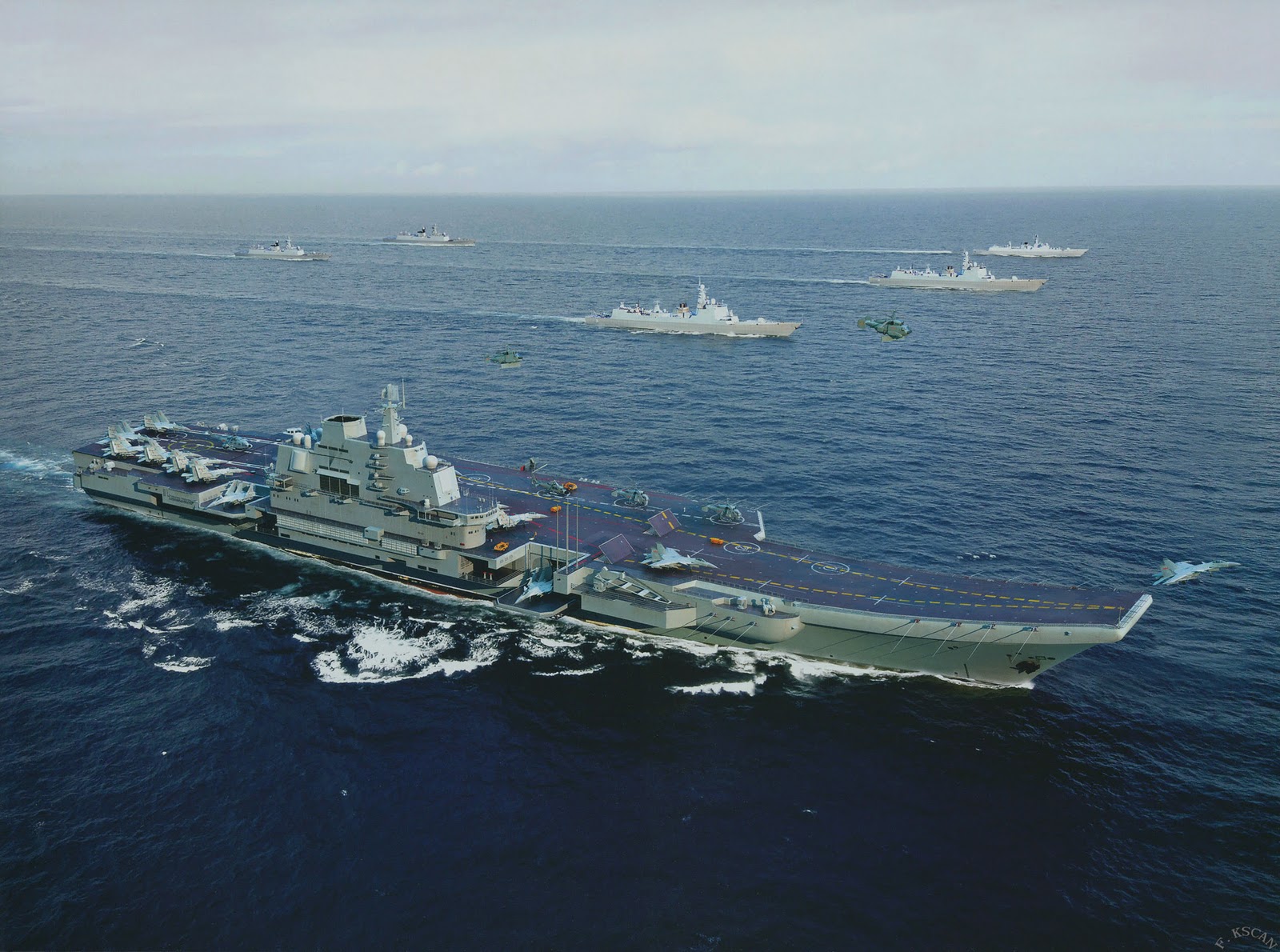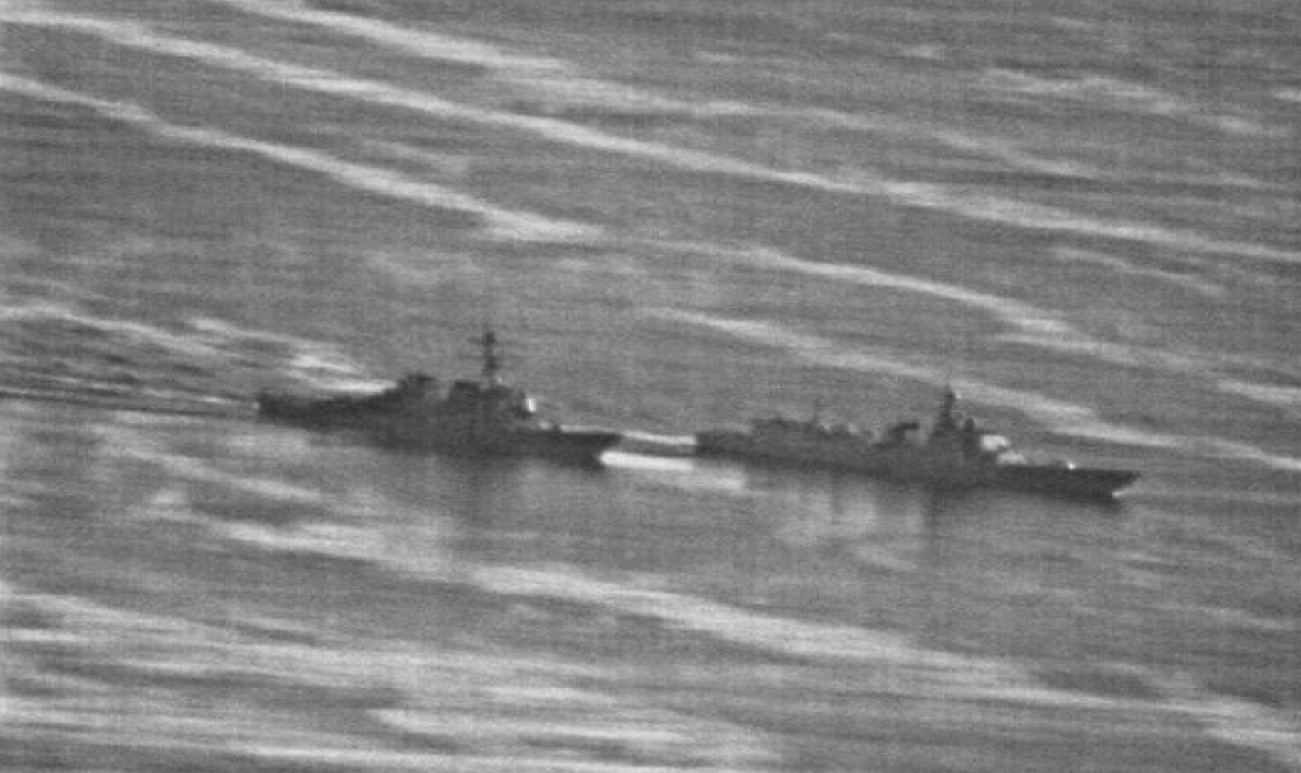
While Washington defends its Navy’s transits through disputed waters in the South China Sea as upholding international freedom of navigation, Beijing blasts these operations as provocative and clear violations of its domestic law, a leading Chinese naval expert said last week; and both positions could harden.
The U.S. needs to consistently transit through contested waters around the globe, not one-offs solely in the South China Sea, said Adm. Scott Swift, a former Pacific Fleet commander during an event at the Center for Strategic and International Studies. The Navy needs to publicize what it is doing and lock these missions along with demonstrations ensuring international air space into place as part of a global grand strategy, not only Pentagon statements on the nation’s security and military views.
The “real power of the American military,” Swift said, lies in “our democracy and delegating of authority” allowing it “to adapt and overcome.”
A recent transit conducted with an overflight of two B-52 strategic bombers above a recently militarized artificial island stiffened Beijing’s resolve to not alter an internal 1996 law claiming sovereignty out to the “nine-dash line,” said Liu Xiaobo, director of the World Navy Research Center at the National Institute for South China Sea Studies, who also appeared at the CSIS event.
The overflights are a demonstration to Beijing that the United States also regarded this as international air space and did not require prior notification for approval. In addition, this year the Air Force flew more B-52s to the East China Sea in exercises with the Japanese Self-Defense Forces and the American Navy near Okinawa.
As with naval transits, the overflights and the exercises were also called “provocative.”
“The domestic effect has been very positive” to this stance, said Liu, a retired captain in the People’s Liberation Army Navy. To the government and the public, he said this definition of sovereignty “is not just a verbal slogan.”
Swift, in remarks following Liu’s panel discussion at the event, said, without a grand strategy “FONOPs are an example [of an activity] being necessary but not sufficient.” He added in answer to a question, “consistency is important” and called for these kinds of operations to be conducted not only in waters China claims but globally. Swift suggested a goal of “More than 200 FONOPs annually.”
Army Gen. George Marshall’s work at the end of World War II, his service in uniform and as secretary of State and later Defense are what Swift called good American models to use when developing a grand strategy to compliment what he considers very good national security and military strategy documents from the Trump administration.
He added important lessons on the role of the military and allies and partners could be garnered from remarks made by Coast Guard Commandant Karl Schultz in Kuala Lampur as reported by USNI News, and guidance and intent statements from Marine Corps Commandant Gen. David Berger.
Saying several times in his presentation and in answer to questions that he was speaking for himself, Liu said China recognizes “the United States Navy defines maritime power,” but sometime in the near future, “China’s navy will sail and operate anywhere international law allows.” An example of operations far from its mainland, he specifically mentioned the Navy’s presence in Guam.

As “the second naval power of the world” now, China is learning from the American Navy and it recognizes that “the South China Sea is one part of the SLOCs [Sea Lines of Communication]” in looking at what it means to be a global force and presence.
“We haven’t been eclipsed yet,” Swift said, picking up on Liu’s earlier remarks. “The power of a nation is not measured by its military, but by [the strength of its] economy. That is ultimately where our power comes from.”
The “real power of the American military,” Swift said, lies in “our democracy and delegating of authority” allowing it “to adapt and overcome.”
But what China is doing this year in the South China Sea falls into the grey zone of conflict — bullying and coercive activities, the panel said. Those actions include naval militia ramming Filipino fishing vessels to Beijing’s Coast Guard harassing Malaysian and Vietnamese oil and mineral survey ships.
“Part of the answer” as to why this Chinese activity has stepped up this kind of pressure “is because it can,” Greg Poling, director of CSIS’s Asia Maritime Transparency Initiative, said in answer to an audience question. The militarization of the reclaimed reefs was completed in 2016 and the build-up of the infrastructure to handle port operations for the maritime militia — most often militarized fishing vessels, Coast Guard ships and warships was finished a year later.
With this build-up complete without direct challenge, Beijing is “trusting in threats and intimidation” to bend Vietnam, the Philippines and Malaysia to its way of thinking and to accept its definition of territorial claims. On average, 300 Chinese vessels are around Subi and Mischief Reefs off the Philippines, with location identifiers turned off, not fishing, and just focused on intimidating and providing a “persistent presence for months at a time” to monitor Manila’s maritime activities.
It’s “clear [the Chinese vessels near the reefs] are on a mission, [but] they just haven’t been given the mission yet,” Swift said when answering a question. He added later this kind of action was reflective of the Chinese “whole of government approach” to issues “right down to the public.”





